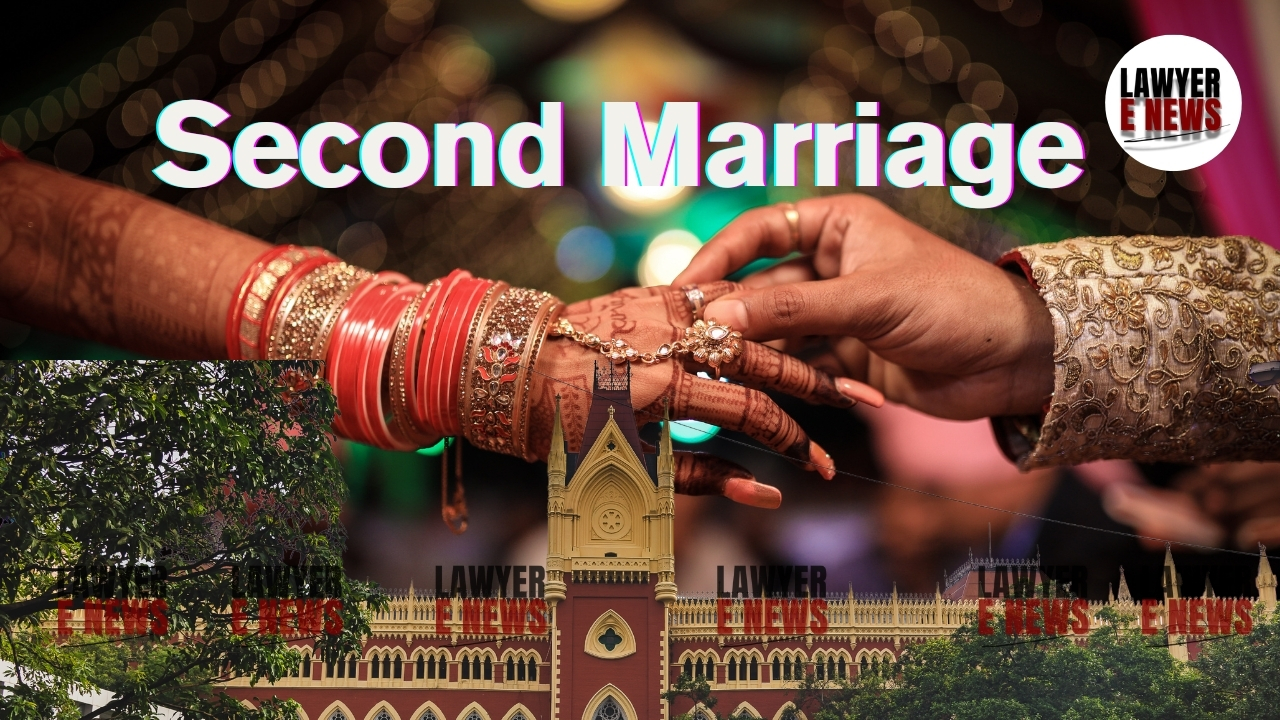-
by Admin
19 February 2026 3:14 PM



“In rural contexts, naming discrepancies do not undo inheritance rights—evidence must be read with realism, not rigidity”, In a legally rich and socially resonant judgment Calcutta High Court upheld a trial court decree recognising five individuals—including children from a second marriage—as co-heirs of a disputed ancestral property, resolving a contentious dispute over identity, legitimacy, and property succession that had lasted nearly a decade.
The Division Bench comprising Justice Sabyasachi Bhattacharyya and Justice Uday Kumar affirmed that “Baroda Mondal” and “Baroda Prasad Mondal” were one and the same person, despite inconsistencies in records, and held that children from his alleged second marriage were entitled to equal inheritance, protected under Section 16 of the Hindu Marriage Act, 1955.
“While no single document irrefutably established the singular identity, the cumulative circumstantial evidence, particularly the consistent paternal link through Nibaran Prasad Mondal, the address link, and PW1’s admission, creates a strong probability that Baroda Mondal and Baroda Prasad Mondal were the same person.”
“Naming Discrepancies Cannot Eclipse Bloodlines”—Court Rejects Technical Objections Over Identity and Documents
The appellants argued that the trial court had wrongly presumed identity between two individuals—“Baroda Mondal” and “Baroda Prasad Mondal”—based merely on similar addresses and paternal name, and alleged that the second marriage and the legitimacy of its children had not been legally proven.
But the Court found that the Register of Death (Exh. 10) and Record of Rights (Exh. 6) consistently listed the father as Nibaran Prasad Mondal, providing a reliable chain of circumstantial evidence.
“In the rural context, informal name variations are not uncommon… The consistent mention of the same father and shared address creates a preponderance of probability that must not be ignored in civil litigation.”
“Children of Void Marriages Are Not Void of Rights”—Section 16 of the Hindu Marriage Act Shields Inheritance
The Court addressed the crucial question of whether the children from the deceased’s second marriage could inherit property, even if the marriage was not formally proven valid. Invoking Section 16 of the Hindu Marriage Act, the Court held:
“Section 16 squarely protects the legitimacy and inheritance rights of children born from void marriages. Their claim as legal heirs cannot be dismissed solely on the ground of the alleged illegality of the second marriage.”
This legal affirmation safeguarded the shares of respondents who were denied recognition by the appellants.
“Suspicion Alone Cannot Disqualify Heirship”—High Court Dismisses Speculative Challenges Over Parentage
The appellants had questioned the plausibility of Shibani Das's birth, citing an improbable age gap with her mother. But the Court found this argument purely speculative, unsupported by DNA evidence or definitive medical records.
“Without concrete evidence, conjecture over parentage cannot invalidate claims of inheritance.”
The testimony of PW1, a family member, was found relevant and admissible under Section 50 of the Evidence Act, as it pertained to family relationship and lineage.
“Gift of Entire Property by One Co-Owner is Legally Invalid”—Court Upholds Partial Cancellation of Gift Deed
The appeal also challenged the trial court's partial cancellation of a gift deed through which Ajoy Mondal (appellant no. 1) had transferred the entire property to his son, claiming full ownership.
The Court held that such a gift deed was valid only to the extent of his 1/5th share, as the property was jointly inherited. The remaining 4/5th share, belonging to the respondents, could not be gifted away unilaterally.
“The cancellation of the registered gift deed to the extent of the plaintiffs’ 4/5th share is a logical consequence of the finding of joint ownership.”
The Court directed the Trial Court to notify the Registrar in accordance with Section 31(2) of the Specific Relief Act, 1963, for rectification.
The High Court modified but largely upheld the trial court’s judgment. Key directions included:
Recognition of all five heirs, including from the second marriage
Upholding the partial cancellation of the gift deed
Direction to proceed with partition
Instruction to the Trial Court to address a pending receiver appointment application
“The Trial Court was within its purview to consider the totality of the evidence… and not bound solely by the discrepancies in statutory documents.”
This decision powerfully affirms that civil cases are judged on probabilities, not perfect documentation, especially in inheritance matters within rural family structures. It upholds that technical inconsistencies do not extinguish legitimate lineage, and that legal protections must serve justice, not procedural formalism.
“Bloodlines are not broken by inconsistent names—law must meet social reality where it lives.”
Date of Judgment: 20 May 2025
